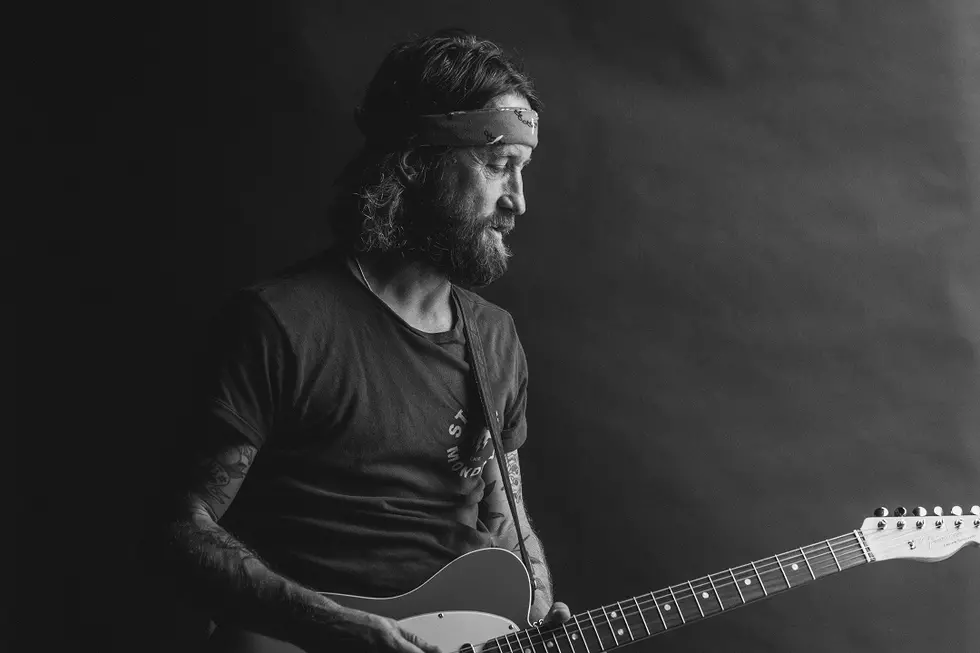
Interview: Chris Shiflett Went Into Making His New Album ‘Hard Lessons’ ‘Without Any Preconceived Notions’
Some musicians dream from an early age about stepping into the circle of the Grand Ole Opry stage to make their debut performance. Others, like Chris Shiflett -- who made his Opry debut on May 17, 2019 -- take a more winding path on their way to the hallowed hall.
"Well, it's obviously a legendary thing to do, and I certainly was aware of its reputation [when I was a kid], but I didn't grow up listening to country music at all," Shiflett explains. "I was a child of the '70s and '80s, you know, listening to classic rock, heavy metal, things like that ... It wasn't until the mid-'90s, with all the alt-country stuff that was happening at that point, that I started to really get into the sound. And then going back seeing what those folks were listening to, that influenced that."
As a kid raised on rock 'n' roll, Shiflett dreamt of playing venues like Madison Square Garden, not necessarily the Opry. If the singer could go back in time and tell his teenage self that he was getting ready to make his Opry debut, he admits he's not sure that kid would believe him.
"I think that person would be very surprised. Very, very surprised," he offers with a laugh. "That would be unexpected."
Shiflett's career is, in many ways, still firmly planted in rock 'n' roll. He is part of rock group Foo Fighters, and has played in many of the venues and accomplished many of the musical goals he dreamt about as a kid. However, with his past two solo albums, including the new Hard Lessons, out Friday (June 14), he has turned toward a more country-inflected sound, working with ace Nashville producer Dave Cobb. While he may not have been expecting to forge a new path in the country realm, when you consider his lifelong approach to music, the evolution makes sense.
"I'm just a passionate music fan, and I've always had that," Shiflett notes. "That's always been top, front and center for me, in life, and I think as the years go by, it's like, if you don't evolve in your taste and how you play, then you stagnate. It's not like I dislike anything specifically that I grew up listening to; as a matter of fact, I go back and listen to those old records quite a bit. It's just that you add to your bag of influences."
Even Hard Lessons marks a different moment in Shiflett's life than his previous solo record, 2017's West Coast Town, though both projects are country-tinged and both were produced by Cobb. That doesn't mean Hard Lessons turned out more "country" than West Coast Town; in fact, if anything, the opposite may be true, thanks in part to Cobb and a particular sound that he suggested to Shiflett when they were in the early stages of making the record.
"Before we even got started, Dave Cobb was like, 'You should be playing a Marshall JCM 800 on this record. Cranked up. Big, loud, rock 'n' roll guitars,'" Shiflett recalls. "I gotta admit, at first, I was like, 'Hmmmm, I don't know about that. That's kinda where I live.' You know what I mean? I wanted to do stuff outside of the Foo thing. I like experimenting with different sounds and things I don't normally get to do."
However, he trusted his producer, and the results, while perhaps not what he initially expected from the songs, represented his blended style. "It's more rock 'n' roll than the last [album], for sure. It's a little less twangy," Shiflett reflects. "I think it's really more representative of all my influences. West Coast Town wasn't anywhere near a straight-up country record, but it certainly leaned a little less driven, loud rock 'n' roll."
The only plan Shiflett had going into making the album, he goes on to say, was not to have a plan at all. "I wanted to make this record intentionally kind of unprepared," he explains. "I think I learned during West Coast Town that Dave Cobb doesn't really care about demos. He wants to hear these songs in the room, in the moment, and just get into it and give it a go."
Plus, he points out, going in open to different musical possibilities had creative advantages: "I demoed a lot of the songs on West Coast Town, and when you do that, you tend to kind of get stuck in your own ideas," he says. "So [this time], I went in intentionally not thinking about what the drums were gonna be, not thinking about what the bass or the keys or the steel -- any of that stuff -- was gonna be. I wanted to be like, 'Here's a raw song. Let's bend it and shape it into whatever it becomes.'
"Like, with the song "Welcome to Your First Heartache,"" he offers as an example, "I thought that would be really mellow, dynamically kind of low. But we turned it into one of the loudest songs on the record. So, I wanted to go into the studio without any preconceived notions of anything."
Country Crossovers That Actually Worked
More From TheBoot









